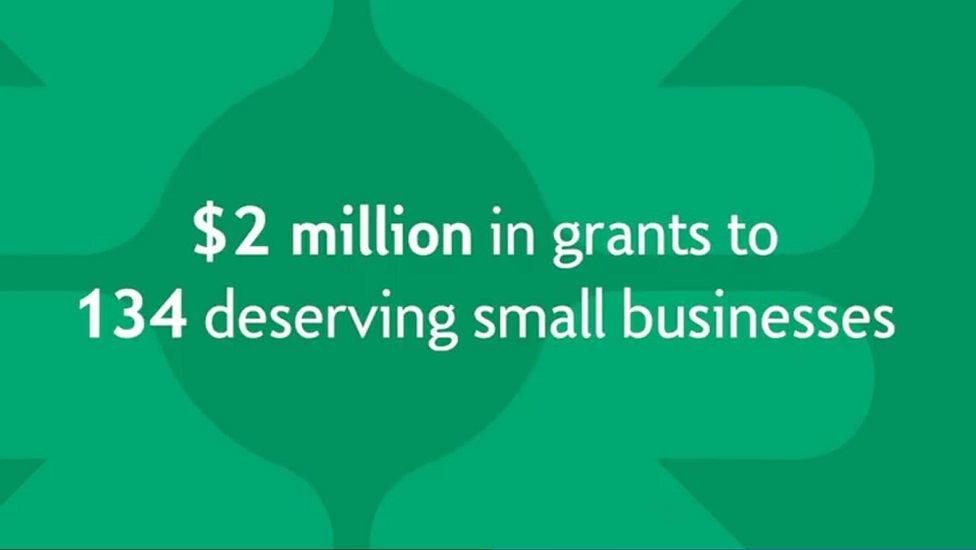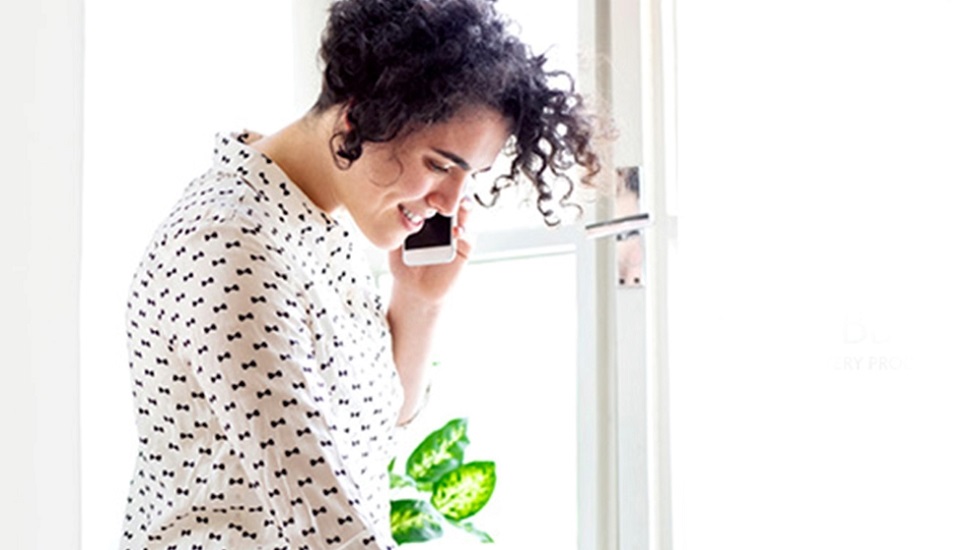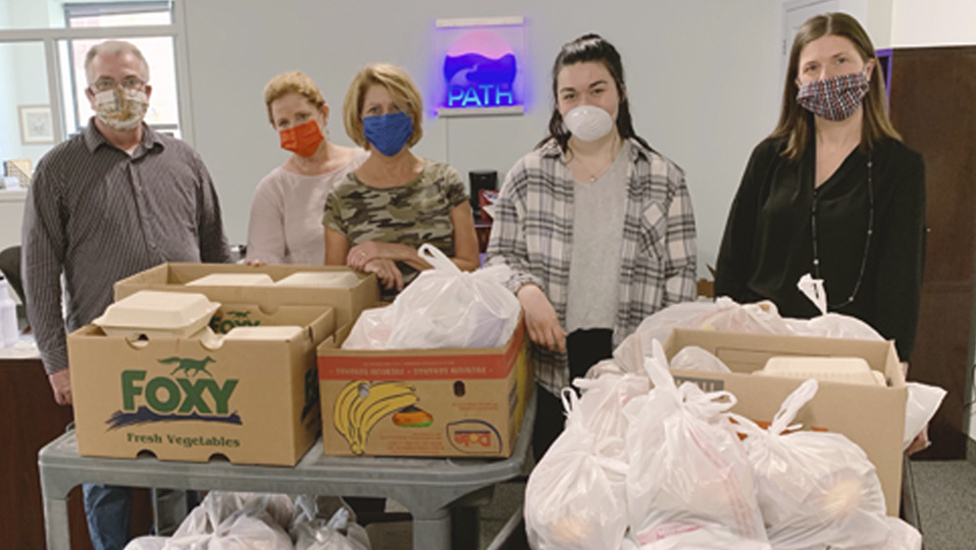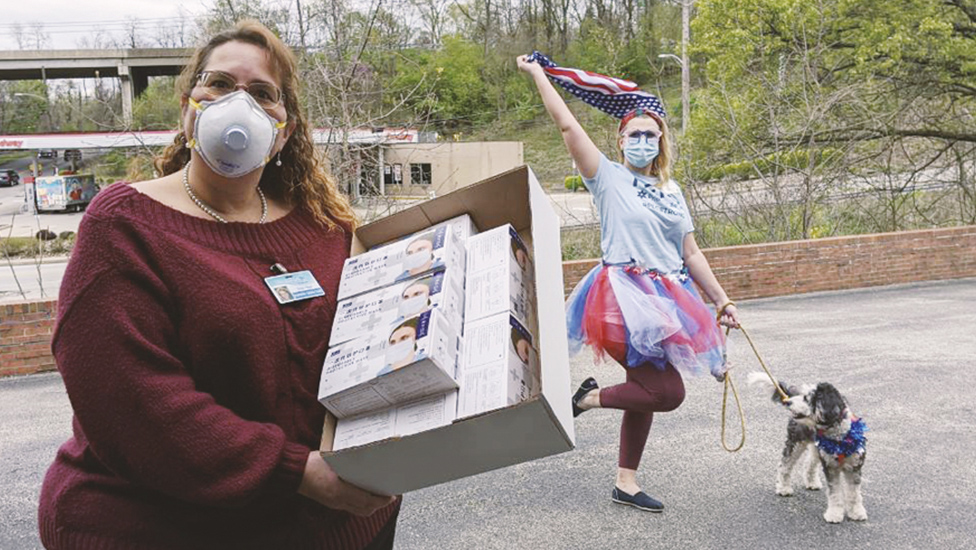Group home doubles down during pandemic

At the Bridgeway Home in northern Ohio, they have a saying: We can’t change the past, but we can change the future.
This sentiment fuels the group home, a safe place for children in less-than-ideal family situations. The home owes this passionate mission to its founders, Shirley and Steve Weese, who were taking kids into their home well before the Bridgeway Home was organized in 1997.
The Weeses were already foster parents — and had been for 18 years — when the group home opened.
“We started taking in babies, but our county had a large need for us to take in teenagers,” Shirley Weese said. “So we tried it, and it worked out well for us.”
The Weeses decided to try adopting teenagers on a larger scale, taking in four or five instead of just one.
“By the time the Bridgeway Home incorporated,” Shirley remembers, “we already had 10 teens living in our home.”
Soon, the Bridgeway Home became an authorized, contracted group home. Since then, it’s branched out to service other counties in Ohio, and now has two locations — one for boys and another for girls.
It all started from an honest desire to change the lives of children, which is one of the reasons why the Bridgeway Home was a recipient of a $15,000 grant from Citizens. To help alleviate the adverse effects of the COVID-19 pandemic, Citizens committed a collective $2 million to 134 small businesses, part of a broader $5 million Small Business Recovery Program.
“The staff was dumbfounded and amazed,” Weese recalls about receiving the grant. “They didn’t know we applied to anything, and they were excited to learn we’re able to do more than we could before.”
The $15,000 will help Bridgeway Home keep its commitment to uphold the children’s education throughout the pandemic, as well as support their physical and mental health.
The biggest impact the coronavirus has had on the home happened when schools transitioned from brick-and-mortar campuses to the virtual classroom. “It was scrambled and unexpected,” Weese says, “to suddenly go to online learning.”
Many of the home’s kids have special needs, so handing them a tablet and telling them to do their homework wouldn’t suffice. Weese had to hire a tutor to give one-on-one attention to those who needed it, replacing the guidance of an in-person teacher. While some businesses are being forced to lay off their staff, the Bridgeway Home had to find room for more.
Did Bridgeway Home have the means to support all these virtual lessons?
“No!” Weese exclaims.
The home had to quickly adapt so the transition could be as seamless as possible. Some of the technology needed for online learning was provided by the local schools, but not all. In addition to updating their technology, Weese hired an IT technician to manage the increasingly digital household. In addition to setting up computer stations around the homes, the IT technician helped ensure everything ran smoothly so the kids could continue their education online.
Becoming well-versed in the digital landscape was necessary for more than just schooling. Because of the nationwide quarantine, the Bridgeway Home had to adapt their usual schedule of appointments. While giving the kids shelter is a priority, the home also found a way to support the children’s mental health with virtual parent visitations, counseling, and psychiatric services.
However, even with social distancing measures, Bridgeway still recognizes the benefits of in-person meetings for kids with extenuating circumstances.
One Bridgeway Home little girl hadn’t seen her parents in a month. Taking appropriate precautions and meeting in a local park far from other people, the family reunited. It was raining that day, but that didn’t stop them.
With the children’s lives already in a state of disorder, the quarantine is taking a toll. The home’s digital transformation has eased the ache a little — all with the hope that one day, Bridgeway can return to normal.
Of course, there’s more to maintaining high morale than that. These kids need structure, Weese says, and since a quarantined lifestyle doesn’t provide it, she and her staff have to fill in the gaps with activities. With the kids having so much more time at home, Weese wants to update recreational equipment, such as a better basketball hoop, and have more activities, such as dance lessons or arts and crafts.
The Bridgeway Home used to take the children on day trips, like boating or fishing, and Weese hopes to give them something to look forward to when the pandemic subsides.
Weese frequently takes some of the kids on trips to Cedar Point, a nearby amusement park. Often times, kids break down and cry. But it wasn’t because they were scared of a ride.
It was the chance to do something they’ve always wanted to do.
Having come from difficult situations, these kids are touched by the smallest of gestures, whether it’s going to an amusement park or receiving an Easter basket.
“Every opportunity we can offer these kids is important,” Weese says. “Our goal is to show them that there is another way of life out there. We want to help them achieve a better adulthood than their childhood.”
For the staff at the Bridgeway Home, setting up these kids for a better adulthood isn’t just about providing a roof over their head. It’s about giving them good memories and a strong support system.
The pandemic won’t stop these children from growing up, and it won’t stop the Bridgeway Home from being a sanctuary for kids in need.
“It’s become our way of life,” Weese said. “We don’t know how else we would do it.”
Ready to help?
To help the Weeses in their mission, visit the Bridgeway Home to make a donation.
And check out all the ways Citizens is supporting local businesses and our communities.
Learn more about our grant recipients

Learn more about our grant recipients
- Anila's Dress Maker (Penn.) pivoting to create face masks
- Widmer & Davis Artisan Distilleries (N.H.) shifting to produce hand sanitizer
- People Against Trafficking Humans (N.Y.) staying true to its mission
- Operation Made (R.I.) helping veterans share their gifts
- The Log Cabin Restaurant (Conn.) giving back in troubling times
- Clover Gift Shop (V.T.) keeping its legacy alive
- Bridgeway Home (Ohio) doubles down during pandemic
- RTM Vital Signs (Penn.) adapting to detect COVID-19
- Fresh Truck (Mass.) is ready to keep rolling
- Visiting Angels of Verona (Penn.) providing hope for seniors
- Johnny's Victory Diner (R.I.) gets a much-needed win
- Broad Street Ministry (Penn.) opening hearts despite closed doors
Video
Related topics

Review all 134 grant recipients

PATH gives trafficking victims a fresh start

Grant recipient: Visiting Angels of Verona
© Citizens Financial Group, Inc. All rights reserved. Citizens Bank, N.A. Member FDIC
Disclaimer: The information contained herein is for informational purposes only as a service to the public and is not legal advice or a substitute for legal counsel. You should do your own research and/or contact your own legal or tax advisor for assistance with questions you may have on the information contained herein.
